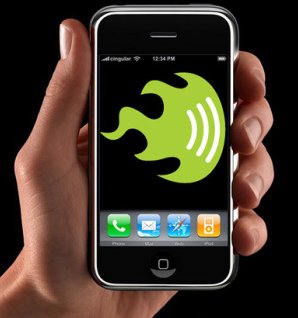It is perhaps a little late to be asking this question, as Internet has become the lifeline for all of us. However, as more and more data keeps being added to the web space, and as we turn to the Internet for almost all of our needs, it becomes imperative to spend an honest thought on how safe the Internet really is! Hence the idea about a Trusted Internet has been floating around for some time now. We go online accepting the fact that not all sites are equally trustworthy or that we probably shouldn’t trust most online sites with our identities. But if Trusted Internet becomes a reality, every online interaction will include a new layer of security and trust enabled by an entire infrastructure designed to help us create mutual and real time trust, and make the web surfing a more stress-free and safe experience.
What exactly is Trusted Internet? And does something like this even exist? The anti-fraud signs that you see on some web-pages, especially e-commerce websites is a step towards achieving trust. It basically means that every digital interaction is safe and hack-proof. You no longer will be pestered with fraudulent sellers or identity thefts, and online search and shopping can become a universal standard, eliminating the shred of doubt about identity thefts.
With a Trusted Internet, we will be able to do things we can’t even try to do today - our PCs will automatically be able to find products or information we want from reputable, authenticated merchants and experts. Our computers will be able to proactively defend our identities ensuring, in real time, that our information is safe and has not been compromised. But most fundamentally it means that we will all able to connect with each other with full confidence that we can create trust online when and where we need it.
Today, Internet has become the go-to destination for most of the answers to our queries. I for one, spend almost 10-12 hours surfing the net, and that means a lot of time and data; it is advisable to not give out your personal information for anything and everything over the net. be careful while divulging important information, and don't go signing up for each application and newsletter unless you trust the source. Credit Card theft is a very small fraud, people have lost way more than money due to security issues on the net.
It is imperative to understand the need for a Safe Internet, and take steps to achieve it. Have a standard PC software at the minimum on your desktop or laptop; there are several browser applications available too. Choose something that comes with recommendation, and which safeguards your data. Don't forget a backup utility too, if you store data online!
Try installing some free software like Comodo’s award-winning firewall, anti-virus software & secure email software. Perform transactions only on known websites which use digital certificates to protect your personal data. It seems like a small thing until you actually face a fraud - so prevention is better than cure. Do your part in preserving your online data, and share the message about helping to develop a Trusted Internet!
If you liked this post, please subscribe to our feed so you'd never miss an article again!











No comments:
Post a Comment